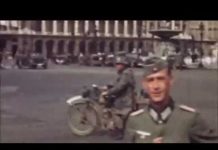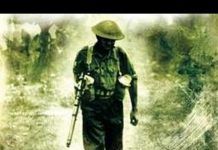In November 1918, in a railcar at Compiegne, French humiliated Germans as they demanded peace. It was a humiliation that was to rankle in the mind of a young German soldier, laying wounded at the time, in an infirmary 700 miles away. Twenty two years later, that German soldier was to take his vengeance. in the same railcar, at the same location, in the dark woodland of Compiegne. Led by Matthias Erzberger, the German delegation began an exhausting journey through the Western Front under a white flag. They eventually arrived at a secret spot in the woods near Réthondes and were escorted to a dining railcar. There, they were challenged by Marshal Foch, General Weygand and British Admiral Sir Rosslyn Wemyss. The treatment was very hostile. The Germans were only paying attention while the terms were read out aloud. There was no debate, only a monologue of dictated conditions. At the same time in Berlin, Prince Max von Baden abdicated. Soon after, the German Emperor, Wilhelm II, went into exile in Holland. never to come back home. Later on Prince Max stepped down from his position as a Chancellor and was replaced by Friedrich Ebert. Germany became a republic! On 11th of November the truce agreement was signed by both parties, the Allies and Germans. The Germans were protesting against the agreement. but at the end they were forced to sign. Several hours later the warfare ended. The alleged ‘war to end all wars’ was eventually over. for the time being anyway! The wooden railcar, in which the truce had been signed, was built in 1913 and soon after the World War I it was returned to commercial passenger service. Then it was requested once again. as a part of the French presidential train. Then, in 1921, it was put on display in Paris as a reminder to French military power and glory. However, that young German soldier, who was in a hospital in November 1918, would become the supreme ruler of the resurrected German Reich. and he would throw all of Europe into yet another vicious world war.
POPULAR PICKS
LATEST ADDITIONS
© Copyright 2017-2022 - Gratis Global Ltd. All rights reserved.

































